By Blake Wilson
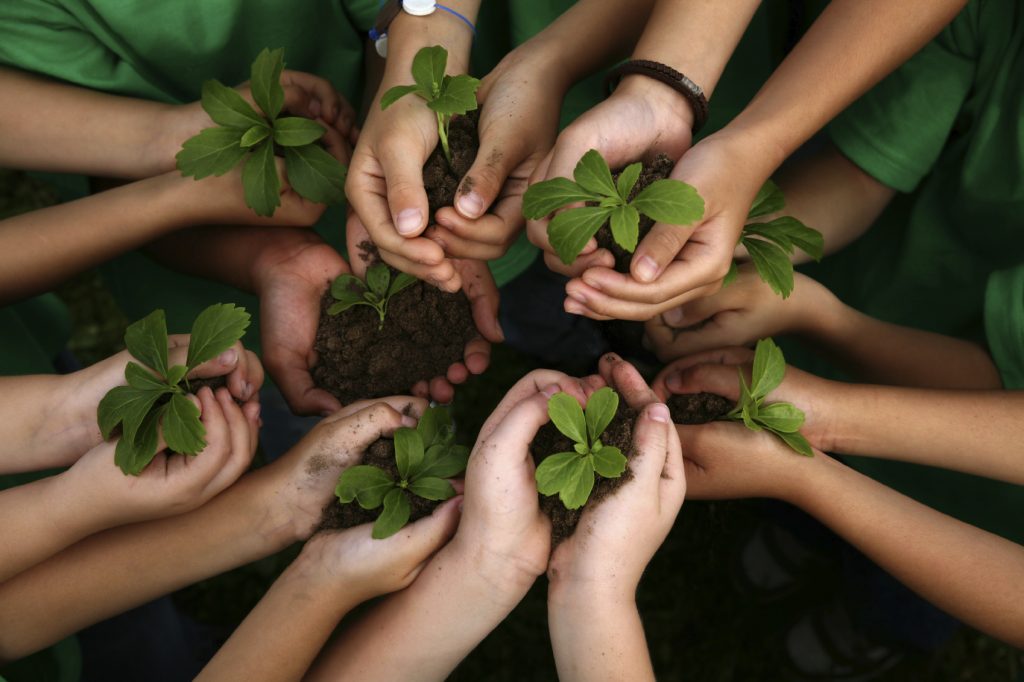
Of all the work and teaching I do, social permaculture is perhaps the most vital, because it offers tools to make all of our work more successful and joyful. In these times of chaos and crisis, we need effective groups that can make change. And we need places of support and nurturance that can feed us as we work for a world of justice and resilience.
―Starhawk (starhawk.org/can-social-permaculture-change-the-world)
Permaculture is a primary component of living in community, whether it has to do with the garden or farm specifically, or just integrated living in general. And then, what is permaculture, and how do we relate these ideals to our children? How does permaculture relate to our progress and future generations?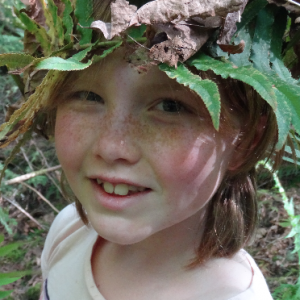
The term permaculture has varied definitions depending on who you ask, and an exact definition is difficult to pin down. We can lay out the principles: observe and interact, catch and store energy, obtain a yield, apply self-regulation and accept feedback, use and value renewable resources and services, produce no waste, design from patterns to details, integrate rather than segregate, use small and slow solutions, use and value diversity, use edges and value the marginal, and creatively use and respond to change.
If we focus on the principle of “obtaining a yield,” this directs us to look to the future. What is our reward, how can it benefit ourselves, and the generations that follow us? Last month, OUR Ecovillage hosted the Little Permie Kids Camp and the Permaculture Design Certificate (PDC) course, at the same time. This was a very important intergenerational event, as most of the adults brought along their “Little Permies.” Having children grow up within an experience-based environment can be vital to a healthy, purpose-driven education.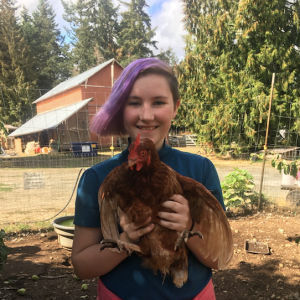
To give more insight, OUR Little Permie Kids Camp is an educational immersion program for kids, where they discover the possibilities of what living and learning in the community can offer them, and how they can use these principles to live in harmony with the world they will inherit. It was mud and mayhem, as the Little Permies ran roughshod throughout the village, but combined with the laughter was a lot of learning, from the dawn to well past dusk. Every bit of their experience here was evidence-based education in action, from exploring the food forest to baking bread. Lisa, a six-year-old Permie, was asked what she knew about kneading, and she shared her know-how: “I roll it over and press with my, what’s this?” she asked, pointing at the bottom of the front of her hand. “Yeah, I roll it over and press with my palm,” she continued, and soon the other children were following right along.
And then, after the bread was rolled and stuffed with herbs and fruits from the garden, it was on to the next task.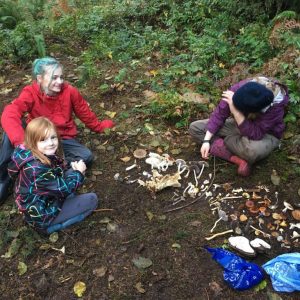
Of course, farm work is never done, and as any child who grew up on a multi-generational farm learned, often there are preschool chores. As did the Little Permies, who were in the barn before breakfast, milking the cows and goats, making use of their tiny fists. The kids definitely had their roles to play, which was very much attuned to how the ecovillage operated on a day-to-day basis. Eggs were collected and cleaned for co-op members; goats were paraded to an enclosed grazing ground; vegetables were harvested for use in pizza sauce and stir-fries; berries were picked before the goats had the opportunity. Child-specific activities centred around permaculture were also part of the daily events. As their home-base the young ones would hang out in the fairy forest, where the permaculture principles are posted, and they built a fort using what was readily available to them.
However, the kids were mostly allowed to explore, learning on their own, and with their own approach, often leading to self-researched “aha” moments. This was a dynamic that affected the community as a whole, of course. The PDC and Permies Camp brought a lot of people to the ecovillage that full-time residents and volunteers were unaccustomed to. Even the number of persons on site had multiplied by five. It could be very overwhelming. But for those of older generations, watching these moments of clarity definitely brought back memories 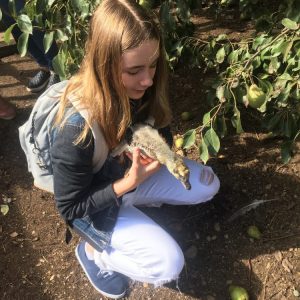 of first being introduced to living on the land and having an early and strong relationship with Mother Earth.
of first being introduced to living on the land and having an early and strong relationship with Mother Earth.
It was this relationship that was at the centre of having the Little Permies work together with the older Permies in the late afternoon. Amongst the many projects that were undertaken by this affiliation were the brewing of compost tea creating a fantastic fertilizer for use on plants, the design of a swale system to promote the catchment of water, and the creation of lasagna composting on garden beds.
If one can pinpoint a moment when a generational shift happens in an intentional community, this may very well be it. As youth share an experience with their parents, it’s evident how quickly they absorb this necessary knowledge through hands-on education. When a project the kids work on actually turns into a 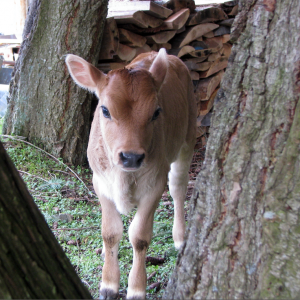 finished, useful product, their desire to include themselves in building community escalates.
finished, useful product, their desire to include themselves in building community escalates.
This coming year, the next Permaculture Design Certificate Course and Earth Activist Training, coinciding with the Little Permie Kids Camp, is running at OUR Ecovillage from June 26-July 13, 2020 (ourecovillage.org/2020-permaculture-design-certificate-earth-activist-training-with-starhawk).
Blake Wilson is Communications Coordinator at OUR Ecovillage.
This is an online-only article associated with the Winter 2019 edition of Communities (#185), “Passing the Torch: Generational Shifts in Community.”
